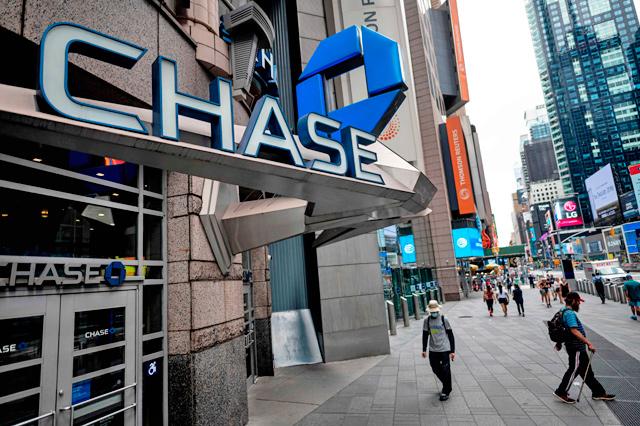- International News
- Web-2020-10-14 | 03:31 pm

Nayrouz News Agency :
Large US banks reported better-than-expected results on Tuesday on an improving economy, but cautioned that the recovery could falter if Washington fails to enact new stimulus measures.
"It's important and it needs to happen as quickly as possible," said Citi Chief Financial Officer Mark Mason, who added that massive spending from Washington has helped avert a tidal wave of delinquencies, so far.
JPMorgan Chase executives warned of "double-dip" recession if there is not another package. That takes place when a second period of economic contraction follows an initial recovery.
"The people we need to help the most are small businesses and the unemployed," said JPMorgan Chief Executive Jamie Dimon, who said Washington's actions will determine whether it needs to take much higher reserves for bad loans.
"If the better outcomes happen" with a good stimulus package, "we are over reserved by $10 billion", he said. But if there is a double-dip recession, the bank could be "unreserved by $20 billion", Dimon added.
The comments came as both JPMorgan Chase and Citigroup released earnings that showed a big improvement from the last two quarters, when both companies set aside billions of dollars in reserves for bad loans in the wake of coronavirus shutdowns.
How many bad loans?
JPMorgan Chase, kicking off a deluge of results from large financial companies, reported $9.4 billion in profits, up four per cent from the year-ago period as revenues were down slightly at $29.9 billion.
But after nearly $20 billion in credit costs in the first half of 2020, JPMorgan reported just $611 million in credit costs in the third quarter. That figure included a boost from $569 in reserve releases.
As in the second quarter, when volatility boosted trading activity, JPMorgan again scored higher revenue from its markets division.
On the downside, the bank reported a decline in net interest income in the wake of Federal Reserve actions to keep rates low to boost the economy.
The big bank lifted its forecast for the US economy and now projects a fourth-quarter contraction of 5.4 per cent and a second-quarter 2021 contraction of 3.7 per cent, both incrementally better than their forecasts in the second quarter.
Chief Financial Officer Jennifer Piepszak said many consumers have higher cash balances than before the pandemic and have avoided taking on debt.
"Things do feel better than we thought they would," she said, adding that "the uncertainty is still very very high".
Citigroup reported a 34 per cent drop in quarterly earnings to $3.2 billion behind a seven per cent decline in revenues to $17.3 billion.
The results featured the same basic trends as at JPMorgan, boosted by strong trading results and lower reserves for bad loans.
At the same time, Citi was buffeted by a hit from lower interest rates and by a $400 million civil penalty from US regulators over lax internal controls announced last week by US authorities.
Households have been spared bruising delinquencies in the pandemic due to hefty US fiscal relief spending earlier in the year, bank executives said. But the stalemate in Washington over new stimulus looms as a risk for the US economy.
"The stimulus programme that was announced has been quite beneficial. It has bridged many consumers," Mason said. "The longer we go without some kind of vaccine that's been tried and tested, the greater the need for additional stimulus."
Shares of JPMorgan dipped 0.2 per cent to $102.23, while Citigroup dropped 1.3 per cent to $45.28 in early trading.













